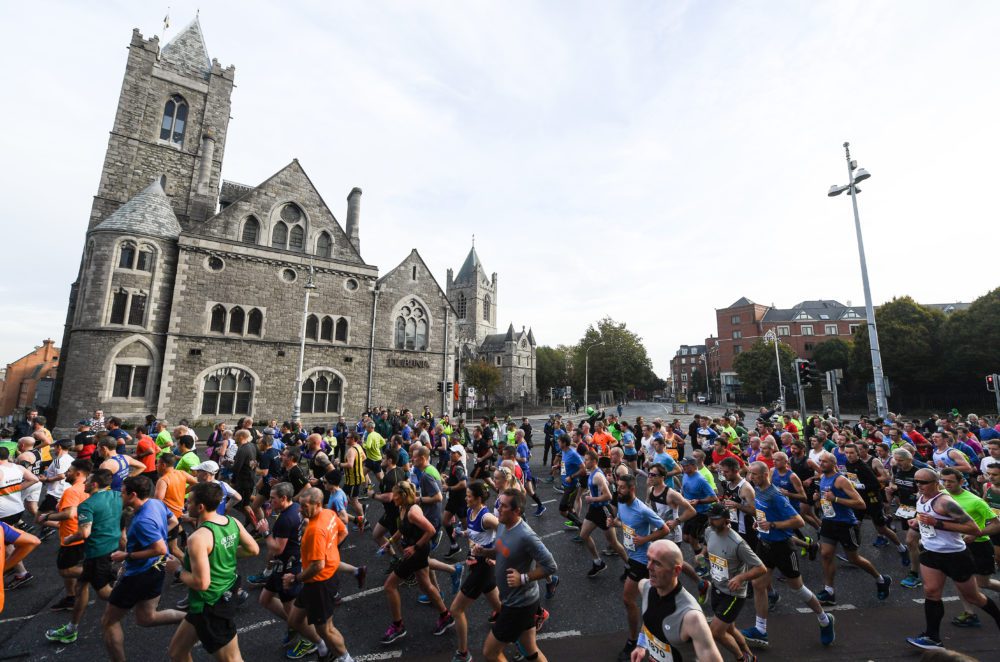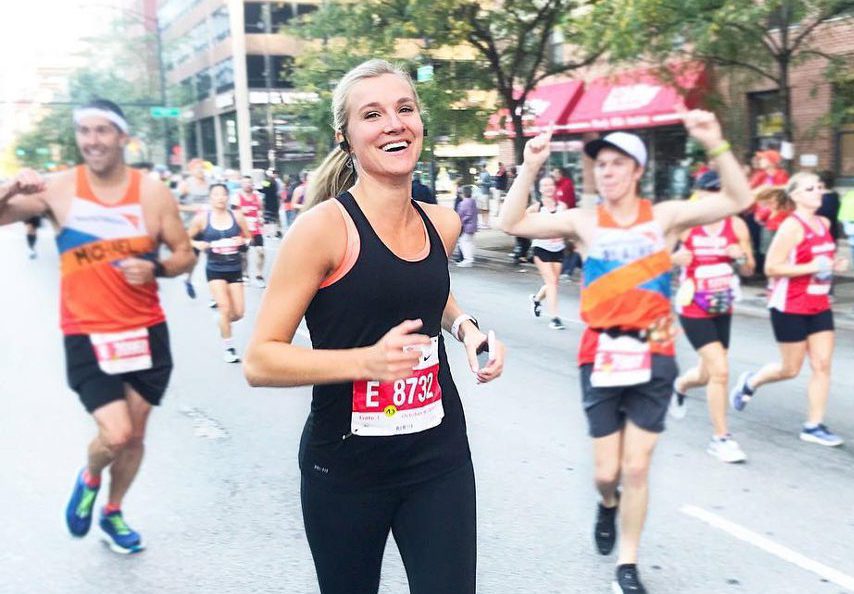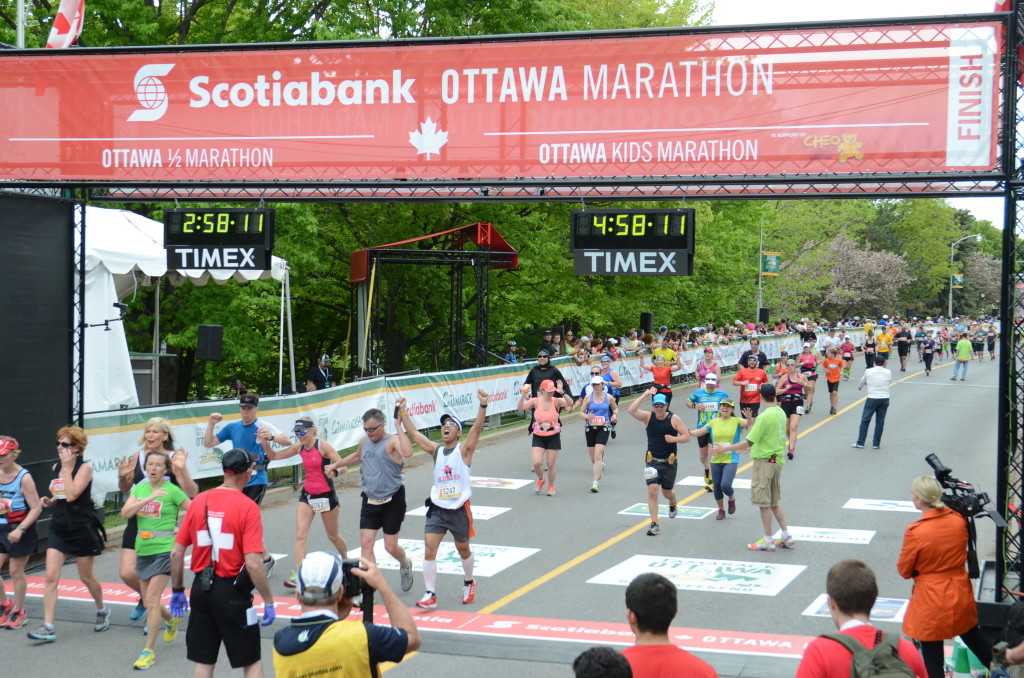Should I run or race my first marathon?
The difference between running and racing your first 42.2K and which is right for you

There are subtle differences between deciding to run or to race your first marathon. The two terms can be used interchangeably in many contexts, but they have a very different connotation on a start line. If you’re weeks (or even days) away from your first marathon, whether you’re running or racing it is something to consider. Making a distinction between the two terms can help you establish your goals and mindset for your first 42.2K.

The difference
Your first marathon is always an experiment. Until you’ve put your body through 42.2K all at once, it’s hard to completely understand what it feels like. Running (as opposed to racing) your first marathon could mean going out conservatively, taking in the race atmosphere and not putting pressure on results. This will allow you to really enjoy the experience and make sure it’s a positive one.
Olympic medallist Brianne Theisen-Eaton told Canadian Running that in her first marathon she found that race day was very different than training runs. “The marathon was very humbling. I did a 20-mile training run leading up to the race, and it felt great. I could’ve run another six miles no problem. After that I thought I was golden. But that training run was on a nice path, Ashton [her husband] was biking beside me, and there were no people around.” She later discovered that this isn’t what a marathon is like. “You have to jump around the course to get Gatorade, you have to avoid people, it’s pretty hectic. At 20 miles into the actual race I was very tired.”

Racing your first marathon is a more dangerous game. You’re entering uncharted waters so taking a more aggressive approach come race day can be very rewarding if the result is positive, and very defeating if the result isn’t. If you’re racing your first marathon, chances are you’ve got a time and place goal in mind.
RELATED: What Olympic medallist Brianne Theisen-Eaton wishes she knew before her first marathon
Which is right for you
If you’re new to running, it’s recommended to approach your first marathon with manageable goals. There will be so many takeaways from your first 42.2K that if you’re someone who’s new to running and racing in general, allow yourself to really experience race day and get a feel for the environment before adding the pressure of time or place goals.
If you’re an experienced road runner who’s taking their first crack at the marathon distance, having concrete goals for time or place is fine. Because you understand how race day works, how to approach competition and what usually works for you in terms of fueling and mental preparation, there’s a higher chance of race day success.

Going forward
The marathon is a different beast and no matter your previous running experience, there will be many takeaways from your first event. Establishing the mindset you want to have on the start line can help to calm the nerves and allow you to execute your plan effectively.
After your first race, make sure you evaluate what went well, what didn’t, and what changes you will make for future events. Choosing between racing and running your first marathon can ensure that you have a mindset conducive to the most rewarding race experience possible.

